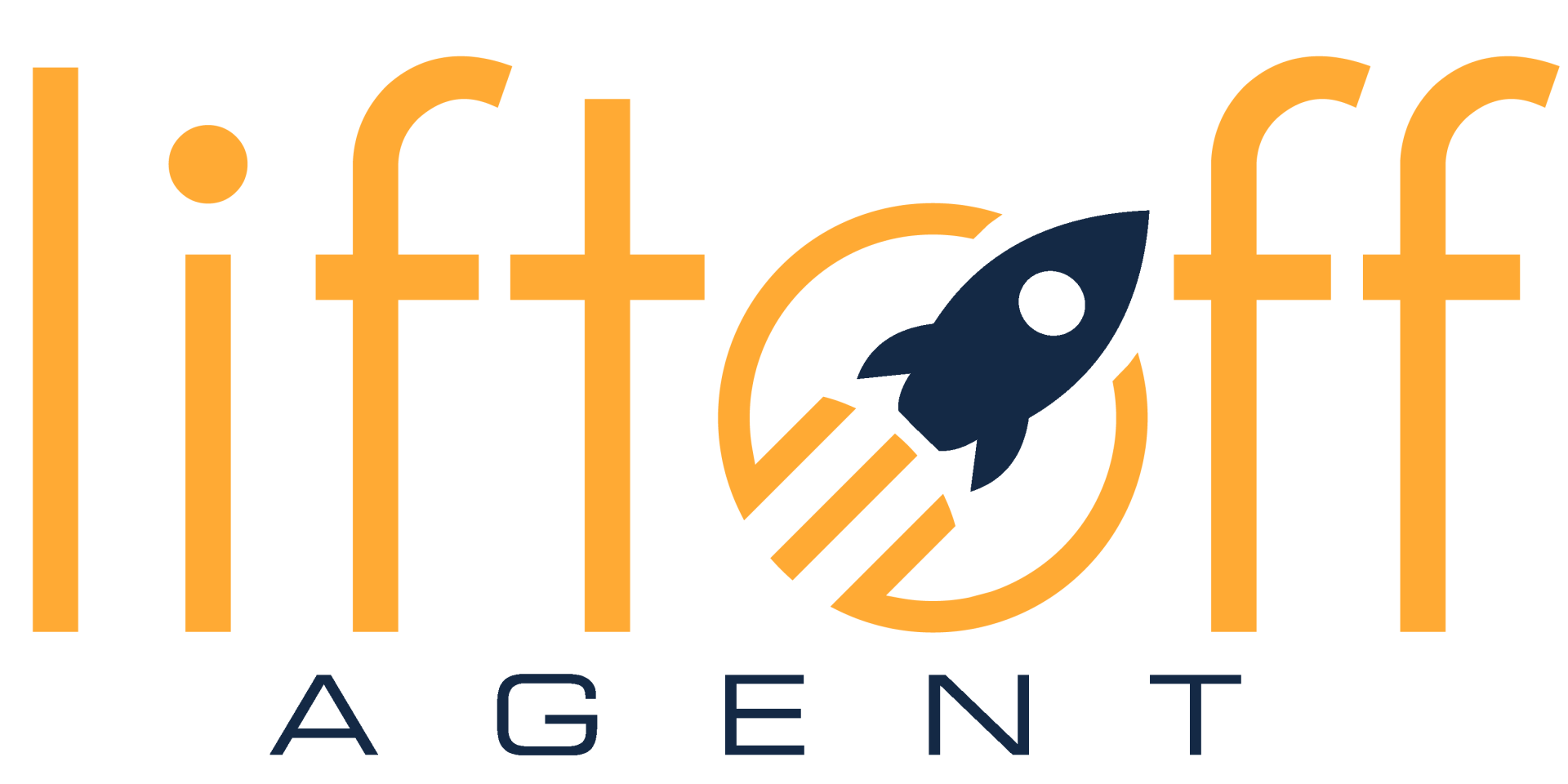How Asking the Right Questions Can Close More Deals
Most real estate agents agree that mastering the art of asking the right questions is essential for closing deals and building strong client relationships. But how does it truly impact clients and foster meaningful conversations? Let’s find out.
Table of Contents
- Why Asking the Right Questions is Key to Closing Deals
- Inspired by 'Exactly What to Say': 27 Words That Make a Difference
- Asking Questions with Genuine Care and Empathy
- Real-Life Sales Stories: How Questions Shape Deals
- The Importance of Long-Term Relationships Over Quick Transactions
- Why You Should Speak Less and Listen More
- Questions Aligning Client's Values
- Creating a Safe Space
- Leveraging Empathy in Sales Conversations
- The Role of Follow-Up Questions in Deepening Understanding
- Building Trust Through Active Listening
- The Impact of Authenticity on Client Interactions
- The Path to Closing More Deals
- FAQ
Why Asking the Right Questions is Key to Closing Deals
In sales, the ability to ask the right questions is not just a skill; it's an art. The right questions can lead you to uncover the needs and desires of your clients, making it easier to tailor your pitch and close deals. When you engage in meaningful conversations, you create an environment where clients feel valued and understood. This approach builds trust, which is essential in any sales relationship.
The Impact of Effective Questions
Effective questioning helps you gather critical information about your clients’ motivations and challenges. This knowledge empowers you to provide solutions that resonate with them. Remember, it's not just about what you ask, but how you ask it. Your tone, body language, and genuine interest can significantly influence the answers you receive.
Inspired by 'Exactly What to Say': 27 Words That Make a Difference
One of the most compelling resources in the realm of sales is the book 'Exactly What to Say.' It highlights 27 specific words and phrases that can change the dynamics of a conversation. These words can prompt action, evoke emotions, and create a sense of urgency.

Utilizing Key Phrases
- “What if…”- Encourages the client to think about possibilities.
- “How would you feel if…”- Connects emotionally, making clients visualize outcomes.
- “Imagine that…”- Opens the door to envisioning a future with your solution.
Incorporating these phrases into your conversations can make a significant difference in how clients perceive your message and ultimately influence their decision to engage or purchase.
Asking Questions with Genuine Care and Empathy
Sales isn't just about transactions; it's about relationships. When you approach conversations with genuine care and empathy, you create a safe space for clients to share their true feelings and concerns. This approach not only helps in closing deals but also in fostering long-term relationships.

The Role of Empathy in Sales
Empathy allows you to step into your client's shoes. It enables you to understand their fears, aspirations, and motivations. By asking open-ended questions and actively listening, you can gather insights that help you tailor your approach. Clients appreciate when they feel heard, and this appreciation can translate into loyalty.
Real-Life Sales Stories: How Questions Shape Deals
Nothing illustrates the power of questions better than real-life experiences. Consider the story of a sales professional who met a tough client. Initially standoffish, the client expressed concerns about financial commitments. By asking thoughtful questions and providing options, the sales professional built trust and eventually closed the deal.
Learning from Experiences
Every interaction can serve as a learning opportunity. Reflecting on past conversations can help identify what worked and what didn’t. This practice not only improves your questioning technique but also enhances your overall sales strategy.
The Importance of Long-Term Relationships Over Quick Transactions
While closing deals is important, building long-term relationships should be the ultimate goal. Quick transactions may satisfy immediate needs, but fostering relationships leads to repeat business and referrals.

Why Relationships Matter
- Trust: Long-term clients trust you more, making them more likely to return.
- Referrals: Satisfied clients often refer others, expanding your network.
- Feedback: Ongoing relationships provide valuable insights for improving your offerings.
Why You Should Speak Less and Listen More
Listening is a crucial skill in sales. The more you listen, the more you learn about your client’s true needs. Speaking less allows you to gather valuable information and demonstrates that you value their input.

Techniques for Effective Listening
- Active Listening: Show that you are engaged by nodding and providing verbal affirmations.
- Paraphrasing: Repeat what the client said to confirm understanding.
- Avoid Interrupting: Let the client finish their thoughts before responding.
Questions Aligning Client's Values
Asking transformative questions can shift the focus from selling a product to aligning with the client’s values and goals. This approach creates a partnership rather than a transaction.
Examples of Transformative Questions
- “What are your top priorities right now?”- Helps identify what truly matters to the client.
- “How does this decision impact your long-term goals?”- Encourages clients to think about future implications.
- “What challenges are you facing that we can help with?”- Positions you as a problem solver, not just a seller.
Creating a Safe Space
Establishing a safe space is critical in sales conversations. When clients feel safe, they are more likely to open up about their true needs and concerns. This openness allows for deeper dialogue and a better understanding of their situation.
To create this environment, start by being approachable. Use a warm tone and open body language. Encourage clients to express themselves without judgment. This approach not only fosters trust but also encourages honest dialogue, which is essential for identifying their needs.
Techniques to Foster a Safe Space
- Be Vulnerable: Share relevant personal experiences to show you understand their position.
- Ask Open-Ended Questions: Encourage clients to elaborate on their thoughts and feelings.
- Practice Non-Verbal Cues: Use nodding and eye contact to show you are engaged.
Leveraging Empathy in Sales Conversations
Empathy is a powerful tool in sales. It allows you to connect with clients on a personal level, understanding their emotions and motivations. When clients sense that you genuinely care, it changes the dynamics of the conversation.
Incorporate empathetic listening into your interactions. Reflect on what clients say, and validate their feelings. This not only builds rapport but also encourages them to be more open and honest. Understanding their perspective enables you to tailor your approach effectively.
Benefits of Empathy in Sales
- Stronger Relationships: Clients are more likely to trust you when they feel understood.
- Increased Loyalty: Empathetic interactions can lead to repeat business.
- Better Problem Solving: Understanding clients' emotions helps in crafting solutions that resonate with them.
The Role of Follow-Up Questions in Deepening Understanding
Follow-up questions are essential for deepening your understanding of a client's needs. After receiving an initial response, dig deeper. This shows that you are not just listening but are genuinely interested in their situation.
Use follow-up questions to clarify, explore, and expand on their answers. This not only provides you with more information but also demonstrates that you value their input. Clients appreciate when you take the time to understand their unique circumstances.
Effective Follow-Up Question Techniques
- Clarifying Questions:"Can you elaborate on that?" encourages clients to provide more detail.
- Exploratory Questions:"What led you to feel that way?" helps uncover underlying motivations.
- Reflective Questions:"How does that align with your overall goals?" connects their feelings to their objectives.
Building Trust Through Active Listening
Active listening is a cornerstone of effective sales conversations. It involves fully concentrating on what the client is saying, rather than merely waiting for your turn to speak. This skill is vital for building trust.
Clients are more likely to share their concerns and needs when they feel heard. By practicing active listening, you demonstrate respect for their thoughts and feelings. This respect lays the foundation for a trusting relationship.
Tips for Practicing Active Listening
- Maintain Eye Contact: This shows you are focused and engaged.
- Summarize Key Points: Reflect back on what you’ve heard to confirm your understanding.
- Avoid Distractions: Put away your phone and other distractions to show you are present.
The Impact of Authenticity on Client Interactions
Authenticity is crucial in sales. Clients can sense when you are being genuine versus when you are simply following a script. Being authentic fosters a sense of connection and trust, making clients more likely to engage with you.
Share your true feelings and insights during conversations. When you are honest about your intentions, clients are more inclined to reciprocate. Authenticity not only enhances your credibility but also makes your interactions more meaningful.
Ways to Be Authentic in Sales
- Be Yourself: Don’t try to fit into a mold; let your personality shine through.
- Share Personal Stories: Relate to clients through your own experiences.
- Admit When You Don’t Know: It’s okay to say you don’t have all the answers. This honesty builds trust.
The Path to Closing More Deals
Closing more deals is not just about having the right answers; it’s about asking the right questions and creating an environment where clients feel valued. By implementing the techniques discussed, you can foster deeper connections and build trust.
Ultimately, success in sales comes from being present, empathetic, and authentic. When clients feel understood, they are more likely to engage and, ultimately, close the deal.
FAQ
What types of questions should I ask during a sales conversation?
Focus on open-ended questions that encourage clients to share their thoughts and feelings. Follow-up questions can help clarify and deepen your understanding.
How can I create a safe space for my clients?
Be approachable, use a warm tone, and practice active listening. Encourage clients to express their thoughts without fear of judgment.
Why is empathy important in sales?
Empathy helps you connect with clients on a personal level, fostering trust and loyalty. It enables you to understand their motivations and tailor your approach accordingly.
How can I improve my active listening skills?
Practice maintaining eye contact, summarizing key points, and avoiding distractions. These techniques show clients that you value their input.
What is the significance of authenticity in sales?
Being authentic builds trust and fosters deeper connections. Clients are more likely to engage with someone they perceive as genuine.
Stay informed and enhance your journey in real estate by subscribing to our newsletter! Receive expert insights, exclusive tips, and the latest trends directly in your inbox. Join our community of ambitious professionals and take the next step towards mastering your focus and achieving business success. Sign up now and never miss an update!
Unlock the potential of Liftoff Agent with Norman Kinsey's industry expertise in real estate website design, offering a comprehensive real estate marketing platform that specializes in SEO for real estate agents, video marketing for real estate, and social media marketing for realtors. As a leading real estate marketing agency, Liftoff Agent provides tailored real estate email marketing and innovative real estate marketing services, empowering agents to leverage digital marketing for realtors and implement top-tier realtor marketing strategies to grow their businesses effectively.

We specialize in working with real estate agents and teams to build local authority. We do this through creating and managing your brand, website, video and social presence.
We'd love to chat and show you how you can dominate your local market and avoid wasted marketing dollars.
Subscribe to Newsletter